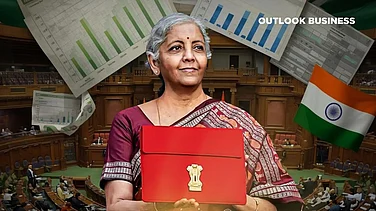As India approaches its 2030 deadline of achieving 500 GW non-fossil energy capacity, it is critical to bridge the gaps in the green energy sector and introduce fresh incentives for accelerating finance. The Union Budget 2025 is round the corner, and there is growing anticipation that the government will prioritise green energy and clean technologies.
India has made significant strides in renewable energy such as wind and solar power, with the installation of 213 GW capacity. However, industry experts believe that the government must introduce more incentives to expand the sector and enhance its support for green hydrogen initiatives and energy storage.
Focus on Green Hydrogen and Energy Storage
Axis Securities expects the Budget to focus on the National Green Hydrogen Mission (NGHM) and taxation incentives for renewable assets, extension to the production-linked initiative (PLI) scheme for solar energy, increased fund allocation for rooftop solar.
NGHM launched in 2023, aims to produce 5mn metric tonnes of green hydrogen per year by 2030. However, green hydrogen continues to be an expensive affair in India due to high production costs. There is a need for financial incentives to support pilot projects on green hydrogen and its derivatives.
Premchand Chandrasekharan, partner at Avalon Consulting said, “We expect a robust commitment to Green Hydrogen and BESS [Battery Energy Storage System] projects, which are pivotal for India's energy transition."
To meet its targets, additional investments in schemes such as Strategic Interventions for Green Hydrogen Transition (SIGHT) and NGHM are needed, said Chandrasekharan.
Battery energy storage systems which are used to store energy from renewable sources and release it when needed, helps in ensuring energy stability and reliability. While the government has launched several incentive-laden policies to attract investment, scaling up energy storage continues to remain a challenge due to high capital costs and raw material vulnerabilities.
For effective integration of energy storage into India’s energy infrastructure, policy support is required. The Budget is expected to address the gaps. “BESS manufacturers will likely get further support under the Viability Gap Funding Scheme and Project Import Scheme,” said Chandrasekharan.
Policy Support to MSMEs
Policy support for the micro-, small- and medium-enterprises (MSMEs) are also expected. The adoption of renewable energy in the MSME sector remains constrained by limited resources and lack of awareness.
Smitha Shetty, APAC Regional Director at Achilles Information, stated, “We hope to see measures such as easier access to green financing for MSMEs, tax benefits for eco-friendly investments and the creation of a robust green credit and carbon market framework to support businesses in offseting emissions.”
For supporting start-ups, Miniya Chatterji, CEO, Sustain Labs Paris said, “My hope is that the Budget will support the growth of SMEs [small and medium enterprises] and start-ups, including catering to the mandatory sustainability related attributes and documentation required for their inclusion in global trade.”
Helping Businesses to Transition
India lacks an actionable policy for incentivising businesses for making a green transition. Shetty of Achilles Information said, “The government must introduce practical, actionable policies that empower businesses to transition toward sustainability seamlessly and inclusively.”
The lack of climate finance taxonomy, a framework for classifying and defining economic activities and investments as environmentally sustainable, is another hindrance in transitioning towards a sustainable future. In the last Budget, government made a promise of developing the taxonomy develop for enhancing the availability of capital for climate adaptation and mitigation. However, there is no clarity on the deadline and implementation of the initiative. Chatterji of Sustain Labs Paris expects the government to take the next step in implementing the same.
Chatterji also advocates for increasing awareness clean energy and hopes that the Budget will address it by intensifying its focus on climate education.
Climate Resilience for Rural India
The budget must increase allocation for climate-resilient agriculture and water management, crucial for addressing the vulnerabilities faced by rural India due to changing climatic conditions.
Apart from this, the government must also improve renewable energy access in the rural communities. Ankit Mathur, co-founder and CEO of Greenway Grameen said, “It would be great to see incentives being given to installation of microgrids using renewable energy sources in rural areas.”



























